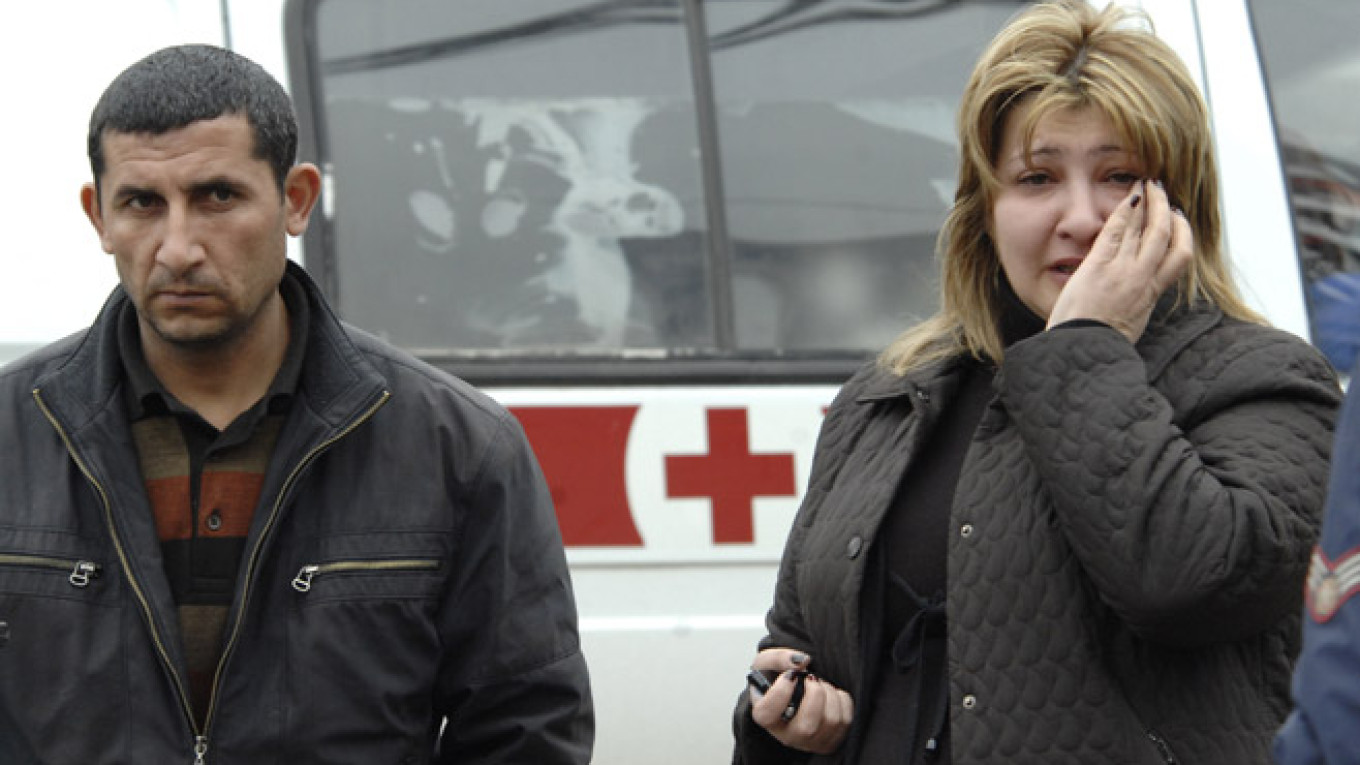In an unexpected departure from one of the most dreaded terrorist strategies, a leader of the North Caucasus Islamist rebels has called on his followers to put an end to female suicide bombings that have claimed hundreds of civilian lives, including in Moscow.
"We categorically ban our sisters from doing this," Aliaskhab Kebekov, known under the alias of Ali Abu Muhammad, emir of the Caucasus Emirate group, said in a lengthy interview with the rebel website Kavkaz Center posted on YouTube on Saturday.
"We monitor how jihad is practiced in Afghanistan, Iraq, Somalia and Mali, and there was not a single case [of a female suicide bombing] there. Women there are not allowed to do this," he said. "My order to brothers is not to use sisters for this."
Female suicide bombings have become a trademark war tactic of the North Caucasus Islamist insurgents, with sensationalist media quickly dubbing the female attackers "black widows."
Since June 2000, when the first such bombing happened in Chechnya, women have been involved in 24 more terrorist attacks, both alone and as part of groups. According to The Moscow Times' count, these attacks have claimed a total of 847 lives, averaging 61 deaths a year.
Eight of those attacks took place in Moscow, including the 2002 Dubrovka theater hostage-taking in which 19 female suicide bombers from Chechnya took part, and more recently, the 2010 twin metro bombings by two women from Dagestan.
There has been a visible shift in the origin of these attacks over the years. In the vast majority of cases from 2000 to September 2004, when two female suicide bombers took part in the attack on a packed school in the town of Beslan, they hailed from Chechnya, which has fought two separatist wars with Moscow. Following a lull in attacks after Beslan, from 2010 to the latest female suicide bombing of a bus in Volgograd in October 2013, most of the bombers came from the neighboring Russian Muslim-populated province of Dagestan where Islamist radicals have been waging a low-intensity deadly campaign against local security and law enforcement officials for nearly two decades.
Kebekov, 42, also a native of Dagestan, assumed his role as rebel leader in March after his notorious predecessors, the ethnic Chechens Shamil Basayev and Doku Umarov, were killed by Russian security forces. His group, the Caucasus Emirate, has been designated a terrorist organization by both Russia and the United States.
"Only in Dagestan is this [female suicide bombings] practiced," he said in the hour-long video interview.
Female suicide attacks have been used occasionally by Palestinian terrorists, Tamil Tigers rebels in Sri Lanka and by the Kurdish Workers' Party. But while those groups resorted to using women after security services became suspicious of men, the North Caucasus rebels starting using female attackers for bombings before it ever used men.
Kebekov cited practical reasons as the rationale behind ending the practice of female suicide bombings.
"It does not have any effect on infidels," he said. "It will be better if these women stay alive and raise their children in the spirit of jihad."
He added that there are dozens of women willing to sacrifice their lives for the sake of jihad in the North Caucasus.
Contrary to Kebekov's arguments, female suicide bombings have been effective, as demonstrated by the death toll above and the factors of shock and fear that have helped terrorists to get their messages across. Two deadly suicide bombings in Volgograd late last year — one of which was blamed on a female terrorist — led to an international discussion over whether the Russian government would be able to provide adequate security for February's Sochi Olympic Games.
See also:
Turkish Terror Suspect Detained in Volgograd Region
Contact the author at n.abdullaev@imedia.ru
A Message from The Moscow Times:
Dear readers,
We are facing unprecedented challenges. Russia's Prosecutor General's Office has designated The Moscow Times as an "undesirable" organization, criminalizing our work and putting our staff at risk of prosecution. This follows our earlier unjust labeling as a "foreign agent."
These actions are direct attempts to silence independent journalism in Russia. The authorities claim our work "discredits the decisions of the Russian leadership." We see things differently: we strive to provide accurate, unbiased reporting on Russia.
We, the journalists of The Moscow Times, refuse to be silenced. But to continue our work, we need your help.
Your support, no matter how small, makes a world of difference. If you can, please support us monthly starting from just $2. It's quick to set up, and every contribution makes a significant impact.
By supporting The Moscow Times, you're defending open, independent journalism in the face of repression. Thank you for standing with us.
Remind me later.


